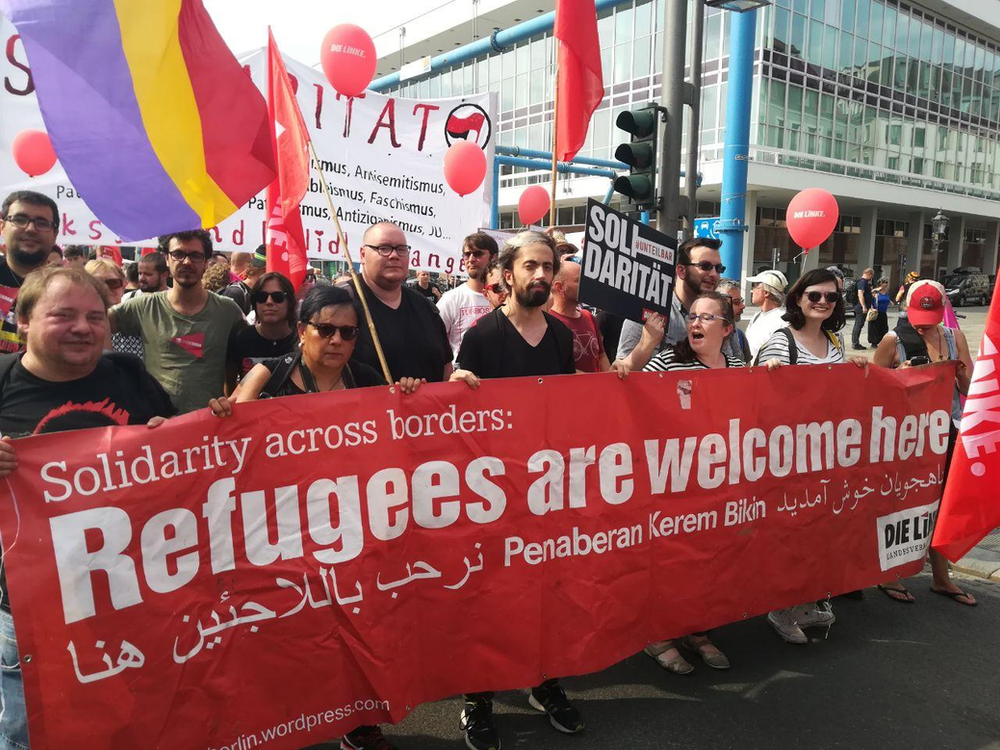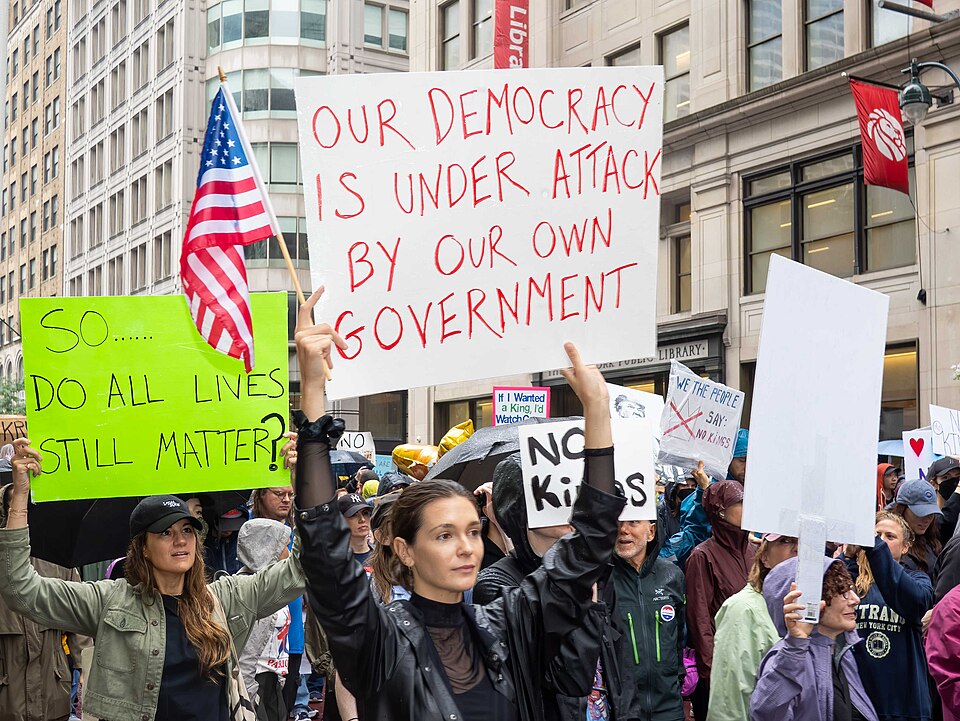I was born in Palencia in Spain almost 32 years ago and have lived in Berlin since 2016. I started to be active in Izquierda Unida (United Left – IU) at the end of 2015, at first as a sympathizer, then as a member, and currently I participate in the assembly of IU Berlin. In 2018 my situation in the German capital was stabilizing and every day it became clearer to me that I would stay here for a long time. That’s why I decided to join Die Linke in 2019 in my district, in Steglitz-Zehlendorf. Die Linke and IU are sister organizations, and both belong to the Party of the European Left and the Left Group in the European Parliament.
I am a double member because I have a double status, that of a Spanish emigrant and that of an immigrant and resident in Germany. As such, the decisions taken in Spain affect my rights (health care, voting rights) or, for example, the perspective of my possible return. Similarly, decisions taken in the Bundestag affect my material conditions (such as housing), my labor rights or my future prospects in Berlin. For this reason, dual affiliation becomes a mechanism to convey the demands of this dual condition.
The double affiliation in two political parties (beyond other types of membership in trade unions, associations, social movements, etc.) is enriching. You learn to participate in two organizations, each with its own mechanisms of functioning, with its own political communicative and strategic lines – which are similar yet distinct. This enables the accumulation of an enormous political-organizational know-how to add to one’s toolbox. You learn different ways of addressing the same issues, sometimes conditioned by the reality of the country itself, but often with a perspective that allows you to apply your experiences and knowledge from one organization to another.
We are internationalists and that is why the double affiliation becomes a condition in which fraternal ties are strengthened, in which we fight more closely side by side for social justice, for environmental protection, for socialism or for peace. We are militants who, as stated in the documents approved by a majority in the XII Asamblea Federal of IU (the twelfth federal assembly of the United Left), held in late March, “help us to build a network of solidarity and cooperation between left organizations”. Internationalism is also built every day by the base and, in this, migration plays a fundamental role.
The double affiliation is also an endurance test: meetings that overlap, schedules and ways of organizing the day that vary between countries and customs; meetings in different languages (Spanish, German, also in English), parallel organizations of events… This way of working cannot always fit into a 24 hour day and sometimes involves deciding which organization to give preference at a given time. This does not mean leaving the other affiliation (far from it), but trying to establish a scale of priorities according to the moment and the situation not only of the organization itself, but of the general social and political context.
There are days when consecutive meetings mean spending several hours in front of a screen. In many cases, like my own, this is after having spent many hours in front of that same screen working. This means both physical and mental fatigue, and also can sometimes prevent you from enjoying other forms of free time, the company of family, friends or partner, or simply the legitimate right to do absolutely nothing.
At this point you may wonder whether it is worth dedicating so much time to this task. The answer is yes. The pros outweigh the cons and, above all, the spirit of striving together in a broad and diverse community is very rewarding and breathes energy into the most exhausting days. Building bridges is what we do instead of putting up walls, as do the extreme right and the nationalist trends that shake Europe and the whole world, because
“Across the frontiers and seas the workers of all nations reach out to each other the hands for a brotherly union; against the international reactionary power of capitalism rises the international revolutionary power of the working class.
The capitalist exploitation unites the workers without difference of trade, sex, religion, and nationality, into the one revolutionary army, that is going to conquer a new world, where labour has all to win and nothing to lose but its chains.”
(Clara Zetkin).
This article first appeared in Spanish in la Region internacional



